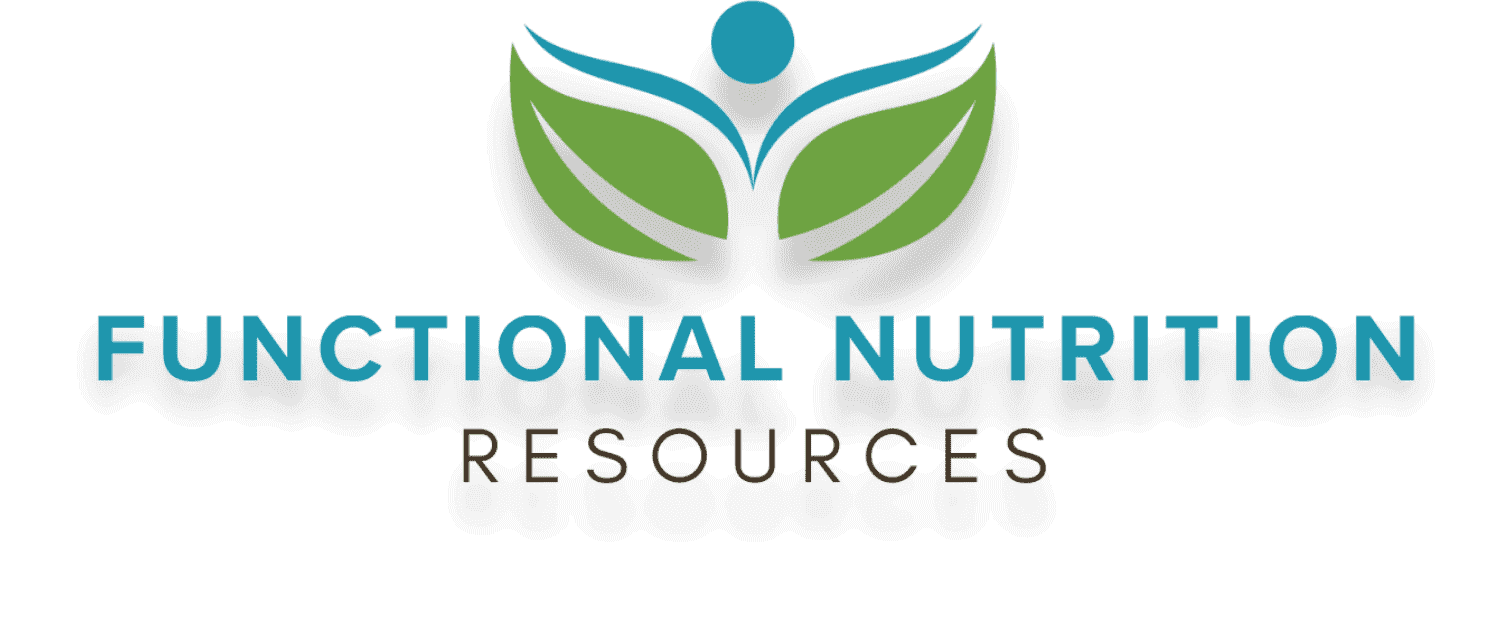Unlock the Power of Functional Medicine to Heal Your Gut Naturally
Ever felt that your digestive system contains a secret code that is secretly affecting your life? It’s a confusing maze? What if I told you that Functional Medicine’s cutting-edge research had a solution so tailored it’s like having a gut health private detective? Functional Medicine can heal your gut naturally, so join us as we explore it! Are you ready to discover the healing language? Because your health change starts here.
Functional medicine treats the gut holistically and individually. Remove food toxins, increase high-fiber foods, take probiotic supplements, eat fermented foods, treat intestinal pathogens, manage stress, reduce refined carbohydrates, NSAIDs, and alcohol, quit smoking, and make other relevant interventions. A trained functional medicine practitioner can analyze your particular requirements and build a customized gut health plan.
Understanding Gut Health: The Basics of Healing your Gut Naturally
The stomach is intriguing and difficult, yet it’s vital to our health. The gut, which begins at the mouth and ends at the rectum, digests food, absorbs nutrients, and removes waste. The gut contains billions of bacteria that affect our physical and mental wellbeing, so it’s more than just a digestive organ.
The enteric nervous system (ENS) is one way to think about the gut’s intricacy. Two thin layers of about 100 million nerve cells line the gastrointestinal system from the esophagus to the anus, known as the ENS. It signals to other regions of the body to control absorption, motility, secretion, and the immunological response.
Instead of separating elements of gut health, we must understand how they interact. Any disruption to this environment might cause an imbalance and harm our health. The microbiota plays a role in this equation.
The microbiome is the varied collection of microorganisms in our stomach and body. Trillions of bacteria, fungus, viruses, and other small creatures live within you, even if you don’t know it! Like fingerprints, our microbiome is unique and affected by genetics, birth mode, antibiotic usage, and more!
Healthy microbes help us digest and absorb nutrients by creating vitamins we may not obtain from food alone. Healthy gut bacteria prevent dangerous bacteria from taking control by competing for resources. Gut flora also develops and maintains our immune system, which protects us from diseases.
Let’s examine gut health now that we understand the microbiome.
The Function and Importance of Gut Health
The stomach breaks down meals into nutrients our systems can use. If everything goes well, the intestines will pass this meal. There are intricate links between gut health’s many components that enable it to operate properly.
Functionally, the stomach separates the body from the outside. Our intestinal lining isolates our internal environment from our digestive system. If not properly constructed, this barrier may become porous, allowing partly digested food particles or bacteria to enter the circulation, causing leaky gut syndrome and other health issues.
Illness is linked to poor gut health. Gut health anomalies are linked to illnesses including inflammatory bowel disease (IBD), autoimmune disorders, mental health issues, obesity, and heart disease.
Neurotransmitters like serotonin and dopamine, produced by gut microbes, alter brain chemistry. Sleep, emotion, and cognition depend on these neurotransmitters. Germ-free mice with healthy microbiota have even shown behavioral differences.
Additionally, diabetes patients’ microbiomes differed from those of healthy people. Inflammatory markers or cytokines often raised in type II diabetes may be associated with dysbiosis, indicating a relationship between gut microorganisms and metabolism.
From breaking down food to protecting us from the outside world, the gut is vital to our health. Poor gut health may cause leaky gut syndrome and raise the risk of IBD, autoimmune diseases, mental health issues, obesity, and heart disease. Gut microbes may affect brain chemistry and behavior. Diabetes patients’ microbiomes and dysbiosis show a relationship between gut bacteria and metabolism.
Role of Functional Medicine in Naturally Healing your Gut
By targeting the root cause of health issues, including gastrointestinal issues, practitioners of an alternative approach called Functional Medicine adopt a patient-centered approach. Unlike conventional medicine, which primarily addresses symptoms, this approach focuses on identifying the causes of gut imbalances. Through the treatment of these underlying disorders, Functional Medicine offers a natural means of repairing the gut and promoting overall health.
Comprehensive testing helps functional medicine treat the stomach. Blood, stool, and other testing indicate vitamin deficiencies, inflammation, infections, and other gut health issues. This information helps practitioners design personalized treatment programs.
Functional Medicine also recommends vitamins and botanicals that promote digestive health. Probiotics, digestive enzymes, and anti-inflammatory botanicals may be present in these dietary supplements.
Functional Medicine In addition, practitioners may suggest dietary, lifestyle, and stress-reduction modifications. Patients may recover substantially with the help of these adjustments and therapeutic treatments, such as acupuncture or massage therapy.
78% fewer patients with inflammatory bowel disease were hospitalized due to functional nutrition therapy.
Dietary Strategies for Healing Your Gut
Anti-inflammatory diets lower inflammation and help maintain a healthy microbiota and intestinal wall.
As discussed above, many meals irritate the gastrointestinal system, increasing inflammation and gut permeability, which may lead to further issues if ingested regularly. Gluten, sugar, processed meals, artificial sweeteners, commercial sauces, and industrial seed oils like corn oil are often avoided. preferring less processed, raw meals.
The reduction of only two food sensitivities may decrease inflammation, which is linked to many chronic health issues, including autoimmune diseases.
Functional medicine’s gut-healing diets include probiotics and fermented foods. Fermented foods like kimchi and miso soup and probiotics balance intestinal microbes.
Omega-3 fatty acids from cold-water fish like salmon or mackerel or plant sources like chia seeds, walnuts, and avocado enhance good gut flora and decrease inflammation.
If your stomach were a garden, proper soil helps plants thrive. Good bacteria need a healthy environment too.
In conclusion, functional medicine diets reduce inflammation, optimize gut health, and reduce gut infections. Whole fresh meals promote a varied spectrum of helpful bacteria, and focused supplementation offers the tools to repair your gut naturally.
Lifestyle Choices Impacting Gut Health
Lifestyle decisions affect intestinal health. To restore your gut, eat nutrient-dense, whole foods and avoid processed and inflammatory meals. Lifestyle choices and nutrition may affect gut health.
Chronic stress impacts gut health. Chronic stress may alter gut flora and cause intestinal inflammation. Gut bacteria inflammation causes digestion issues, emotional difficulties, skin ailments, and other health issues.
Research reveals that exercise improves gut health-related physical and mental wellness. Regular exercise helps with digestion, stress, inflammation, and bowel movement.
Excessive alcohol consumption damages the intestinal lining and gut immunity, causing leaky gut syndrome. Sugar and bad fats disrupt the gut microbiota, causing inflammation and infections to enter the circulation, inflicting even more harm.
Avoiding smoking, getting adequate sleep, getting sun exposure, and spending time in nature all increase immune function and mental clarity.
Stress Management and Gut Health
Each day brings fresh stressors into our lives. Chronic stress takes time to affect a person’s health and lifestyle. Stress management is crucial for gut health patients.
Studies show mindfulness meditation reduces stress. Mindfulness reduces cortisol, a hormone that may harm gut health in excessive doses. Meditation is a simple self-care exercise that improves health, reduces anxiety, and boosts well-being.
Exercise lowers cortisol, which improves gastrointestinal and mental health. Regular exercise boosts endorphins—the body’s natural feel-good hormone—and reduces stress.
Consider your digestive tract a garden that thrives when cared for to reduce stress and improve intestinal health. The best harvest—a healthy, well-functioning gut—requires daily watering with balancing lighting (sunlight), nutrition (a well-balanced diet), fresh air (frequent exercise), and weeding (addressing underlying stresses).
Lifestyle adjustments like those listed here and functional medicine techniques help people find what works for them. Over time, these healthy choices may enhance a person’s metabolic rate and overall physiological performance for the best long-term results.
Shifting Away from Traditional Gut Medication
When we were sick, we went to the doctor and got medicine. Today, more individuals are realizing that standard medicine may not be the best option.
Traditional methods frequently treat symptoms but not the cause. Medication side effects might be worse than the ailment being treated. Functional Medicine addresses whole-body health and finds the cause of issues.
Functional Medicine treats inflammation, which may cause many chronic diseases. NSAIDs may cause liver damage, stomach ulcers, and cardiac difficulties. Functional medicine combines nutrition, vitamins, and herbs to manage inflammation.
Conventional medicine may also concentrate too much on symptoms rather than how the body works. Some medications reduce pain but not inflammation, which is at the core of most chronic illnesses.
Functional medicine treats health concerns holistically to improve bodily functioning by recognizing that apparently unrelated body systems may affect each other.
Traditional medicine works well for acute illnesses and medical crises, but it fails to treat chronic ailments like autoimmune disorders and leaky gut syndrome.
Functional Medicine uses diet and lifestyle modifications to treat and prevent these disorders.
Let’s examine some successful functional medicine inflammation management options.
.
Functional Medicine Alternatives for Inflammation Control
Functional Medicine offers several natural inflammatory treatments. Diet is crucial.
Studies demonstrate that a diet heavy in processed food, sugar, and refined oils may raise inflammation, while a diet rich in fruits, vegetables, quality protein, whole grains, and healthy fats can lower it.
Another comparison is that our hectic lifestyles may cause chronic inflammation. Chronic inflammation may cause long-term disorders like stress does to mental health and relationships.
Medication doesn’t always address lifestyle variables that produce inflammation. Functional medicine addresses gut imbalances and inflammation-causing foods to heal from the inside out.
Since 70–80% of the immune system is in the gut, Functional Medicine employs natural supplements like Omega-3 oil, which is anti-inflammatory, or digestive enzymes to enhance gut function.
Functional Medicine provides several non-toxic ways to manage and prevent inflammation. Functional medicine may treat and prevent chronic inflammation-related diseases with tailored care and a comprehensive approach.
Ready to take control of your gut health and unlock the benefits of Functional Medicine in Tulsa? Contact us for our free newsletter to receive expert insights, tips, and personalized gut health recommendations straight to your inbox.

